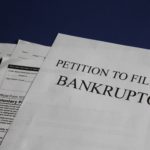If you’re drowning in debt, you’re probably looking for the best solution to free you up. You may be wondering which is a better option, debt settlement or bankruptcy. While both may provide an effective solution to get rid of your debt, they have upsides and downsides worth noting. Weighing the pros and cons of each may help you make an informed decision.
Find out how debt settlement and bankruptcy compare to know which option is better for your needs.
What Is Debt Settlement?
Debt settlement is an agreement between the borrower and the creditor to lower the debt owed. Once you pay down the negotiated amount, typically a lump sum, your creditor will report your debt as settled. Most creditors are willing to accept less than what you owe through debt settlement because they might get nothing back when you file bankruptcy.
In a debt settlement program, you’ll stop paying on your enrolled accounts to increase your chances of settling. While your credit may suffer during this period, you’ll be saving money for a settlement.
After some time, you can negotiate your debt settlement yourself or hire a third party, typically a debt settlement company, to do it on your behalf. If you decide to work with a debt settlement company, you’ll pay a fee (which varies by company) after you authorize the settlement and the first payment has been made. If you and the creditor agree on the settlement offer, the debt settlement company will coordinate getting the payment to your creditor.
Due to the rising number of financial scams, it’s crucial to do your due diligence before hiring a debt settlement company. Ideally, you want to work with a company that collects fees once settlement payment begins.
Not all creditors are open to a debt settlement program, though. In this case, you may want to consider another alternative.
What Is Bankruptcy?
If you’re in a situation where you’re unable to repay your debt, even the reduced negotiated amount from your debt settlement, you can file for bankruptcy, which may erase your total debts. Bankruptcy comes in two types: Chapter 7 and Chapter 13.
How Chapter 7 Bankruptcy Works
Chapter 7 bankruptcy completely erases your personal debts. In this type of bankruptcy, you agree that a court-appointed trustee liquidates some of your non-exempt assets (according to law) to pay back debt. That’s why it’s also called a liquidation bankruptcy or straight bankruptcy.
Chapter 7 bankruptcy may seem like a better option since it completely wipes away debt within six to eight months. However, it can be challenging to qualify as it requires you to earn less than your state’s median income. Plus, it will have a negative impact on your credit rating.
How Chapter 13 Bankruptcy Works
Unlike Chapter 7, which entirely wipes out your debt by liquidating your assets, Chapter 13 involves a court-approved three to five years payment plan to pay off your debts. Once you’ve made all the payments under the plan, you’ll get a discharge of your debts.
Also referred to as reorganization bankruptcy or wage earner’s plan, this type of bankruptcy protects your personal property. However, it can have a severe impact on your credit score.
Pros and Cons of Debt Settlement
Like any other financial vehicle, debt settlement has benefits and setbacks.
Debt Settlement Pros
- You pay less than you owe: The main advantage of debt settlement is you pay a lower amount of debt than what you owe. and the rest of the debt is forgiven.
- Protects your reputation: Unlike bankruptcy that anyone can find out about, debt settlement isn’t a matter of public record. It’s not something that will come up in situations that might require background checks unless the background check requires a credit pull. That means your financial reputation is protected.
- Avoid the legal process of bankruptcy: Since debt settlement is a private negotiation, you don’t have to file a bankruptcy claim or need legal advice, which can be expensive.
Debt Settlement Cons
- You can be sued for failing to pay your debt: Creditors can take legal action before the settlement agreement or if you don’t stick to the debt settlement plan.
- Damage your credit score: While paying less than you owe sounds like the best choice, your credit score will suffer since debt settlement remains on your credit report for seven years. However, the credit impact is not as severe as that of bankruptcy.
- Debt settlement companies often charge expensive fees: Working with a debt settlement company can be costly. Plus, not all lenders are open to working with debt settlement companies.
- Income taxes on forgiven debt: Even if your creditor agrees to lower the debt you owe, you’re still on the hook for income taxes for canceled or forgiven debts.
Pros and Cons of Bankruptcy
Filing a bankruptcy claim has notable upsides and downsides.
Bankruptcy Pros
- Get rid of unsecured debt: With a Chapter 7 bankruptcy, all your unsecured debts are wiped out, giving you a chance to start over once again.
- Some of your personal property is protected: While bankruptcy may do away with an unsecured loan, you can avoid foreclosure of your mortgaged home.
- No taxes on discharged debts: Debt that has been canceled through bankruptcy is not considered a taxable income.
Bankruptcy Cons
- Long-term severe impact on your credit report: Bankruptcies remain on your credit report for up to 10 years, so your credit rating will immediately take a significant hit. This means it will be challenging to take a loan or obtain a line of credit.
- Not all debts can be discharged: Bankruptcy cannot erase some debts, including child support payments, alimony, taxes, and student loans, so you’ll still need to repay them.
- High bankruptcy attorney fees: Filing a bankruptcy claim can be expensive since you need to work with a lawyer.
Who Should Consider Debt Settlement?
Debt settlement may be a good option for your debt problems if:
- You can negotiate with your creditors or debt collectors to reduce the debt owed.
- You’re willing to hire a debt settlement company if you’re not good at negotiating.
- Have enough money to cover your bills and essentials once you enter into a settlement agreement.
When Bankruptcy May Work
Filing a bankruptcy claim may be a good alternative if:
- You are not in a position to pay even the negotiated debt settlement
- The only way to make payments is using a credit card
- You use your credit card to pay off another
- You’re in danger of foreclosure
Debt Settlement vs. Bankruptcy: The Bottom Line
Dealing with debt can be challenging for many people, and seeking a solution can help you find relief to work on restoring your finances. Working with a professional may help smoothen the process and improve your chances of getting out of debt faster.
FAQs About Debt Settlement vs. Bankruptcy
There’s no one-size-fits-all route out of debt. Debt settlement may be ideal in one situation and bankruptcy suitable in another scenario. If you need help deciding which path to take, you may want to consider working with a professional, typically a debt relief company.
Both debt settlement and bankruptcy will negatively impact your credit rating. Debt settlement remains on your credit report for up to seven years. Whether you file for Chapter 7 or Chapter 13 bankruptcy, your credit score will still decrease. The damage to your report depends mainly on how good your credit score was before.
The question of whether you should work with a debt settlement company entirely depends on your current financial situation. If you’re good at negotiating, you can pursue debt settlement yourself. Otherwise, working with a debt settlement company will do the heavy lifting for you in negotiating with your creditors and may hasten the process of getting rid of debt.







